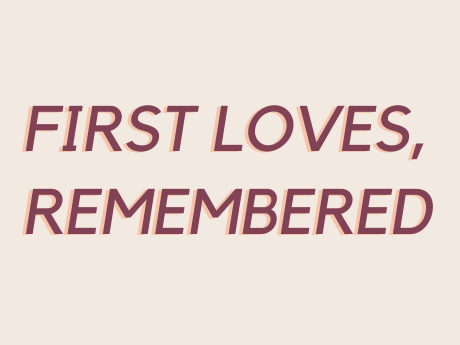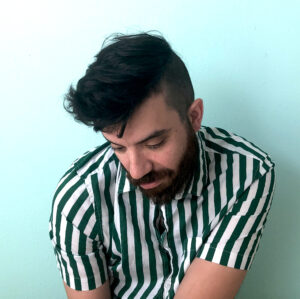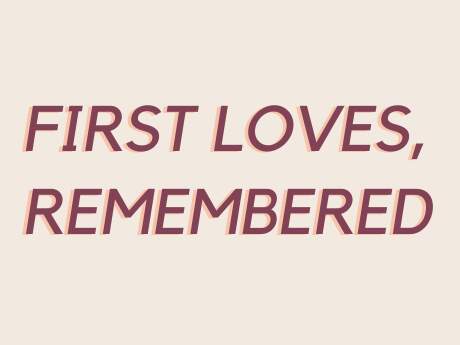First Loves, Remembered
Kaveh Akbar on Yusef Komunyakaa’s poem “Facing It”

Facing It
My black face fades,
hiding inside the black granite.
I said I wouldn't
dammit: No tears.
I'm stone. I'm flesh.
My clouded reflection eyes me
like a bird of prey, the profile of night
slanted against morning. I turn
this way—the stone lets me go.
I turn that way—I'm inside
the Vietnam Veterans Memorial
again, depending on the light
to make a difference.
I go down the 58,022 names,
half-expecting to find
my own in letters like smoke.
I touch the name Andrew Johnson;
I see the booby trap's white flash.
Names shimmer on a woman's blouse
but when she walks away
the names stay on the wall.
Brushstrokes flash, a red bird's
wings cutting across my stare.
The sky. A plane in the sky.
A white vet's image floats
closer to me, then his pale eyes
look through mine. I'm a window.
He's lost his right arm
inside the stone. In the black mirror
a woman’s trying to erase names:
No, she's brushing a boy's hair.
From Pleasure Dome: New and Collected Poems. Copyright © 2001 by Yusef Komunyakaa. Reprinted with the permission of Wesleyan University Press.
Twenty years ago, the Poetry Society published a series called First Loves in which we asked distinguished poets, including W.S. Merwin, Ntozake Shange, and Robert Creeley, to reflect on the poems that first captured their imaginations. The series eventually became a book, edited by Carmela Ciuraru, titled First Loves: Poets Introduce the Essential Poems that Captivated and Inspired Them. Here, we revisit that question with a new generation of poets, revealing how poetic influences both endure and change.
Kaveh Akbar on Yusef Komunyakaa’s poem “Facing It”
Like many writers, I had a formative high school English teacher. Mine was Steve Henn—Mr. Henn to me then—who read this poem for us in class one day. I had never knowingly heard poetry by a living poet. I don’t think I knew there was such a thing as a living poet—not one who wrote entire books of poems, anyway. I heard “Facing It” and it did for me what it’s done to countless people since Komunyakaa wrote the poem in 1984—it awakened me to the potential of language. I was just sitting there, feeling one way. And then a short poem later, I was feeling this whole other thing. This massive, booming thing. I still don’t think I’ve gotten over it, how language, these bizarre sounds and shapes, can surge you from one place to another.
I asked Mr. Henn if I could borrow the book, Neon Vernacular, and he happily gave it to me with a whole stack of other poetry books; not just the Komunyakaa but also a bunch of other people I’d never heard of, poetry journals with crazy names like Nerve Cowboy and Zen Baby. I put the stack in my bag carefully, one by one, and carried them home like treasure, like the bones of a saint.
When I got to my bed after school and cracked open Neon Vernacular, it was one of those great moments of epiphany one only gets a couple of in a lifetime (if one is very lucky!). I was a miserable teenager, ravaged mercilessly by hostile psychopathologies. Baldly: I had not felt particularly attached to remaining alive. But holding this book, this book of poems, looking at my backpack full of poems, I acutely remember thinking, ‘Well, shit, this is worth staying alive for.’
I’ve reread “Facing It” a billion times by now. Everyone has; it’s one of the great American poems of the 20th-century. And yet I’m still able to touch a little sliver of that feeling I had as a fifteen-year-old hearing it for the first time—how there was this man, Yusef, somewhere in the world, with a hurt so deep—“No tears. / I’m stone. I’m flesh.”—writing about it. Writing about it. That was, and remains, worth staying alive for.


